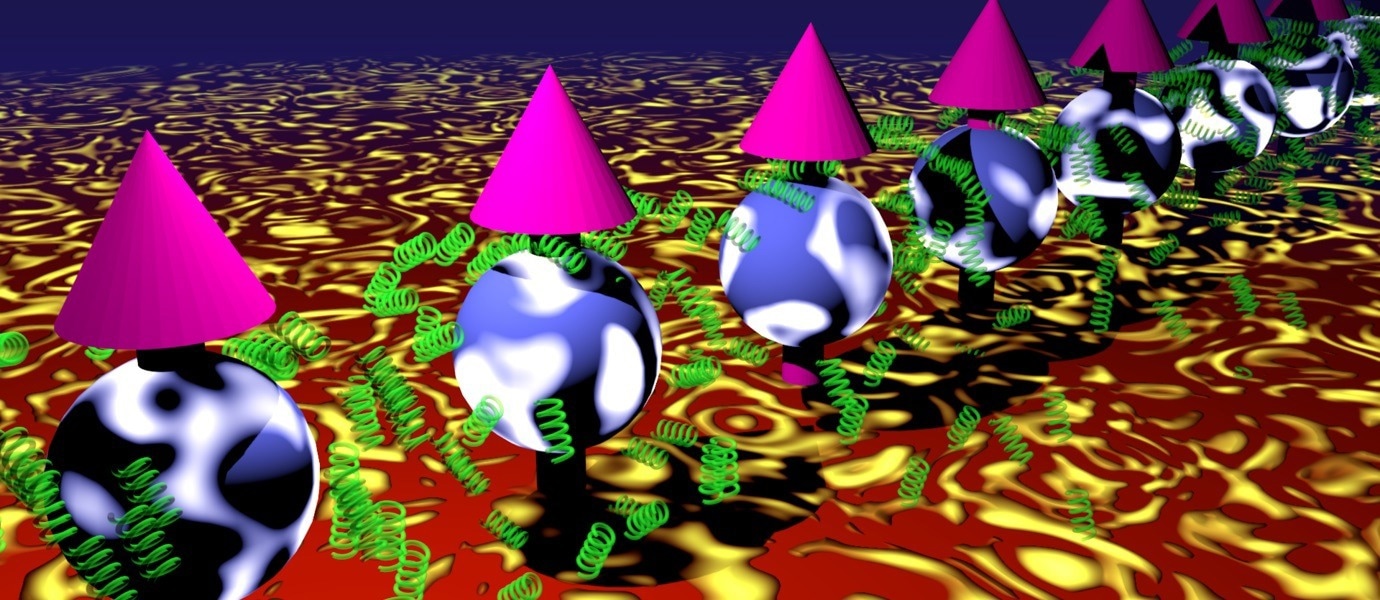Researchers have developed a method for estimating the behavior of many-body quantum systems coupled to their surroundings. The new study demonstrates a method for safeguarding quantum information in quantum devices, which is essential for practical applications of quantum technology.
 Illustration of non-Hermitian topology and open quantum systems. Image Credit: Jose Lado/Aalto University
Illustration of non-Hermitian topology and open quantum systems. Image Credit: Jose Lado/Aalto University
Researchers from Aalto University in Finland and IAS Tsinghua University in China provided a novel method for predicting how quantum systems, such as groups of particles, would behave when connected to the external environment in a study that was published in Physical Review Letters.
Normally, connecting a system to its surroundings, such as a quantum computer, causes decoherence and leaks, which obliterate all information about what is happening inside the system. The approach the researchers have now devised converts that problem into a solution.
Guangze Chen, an Aalto doctorate researcher, conducted the study with the assistance of Fei Song, an IAS Tsinghua researcher, and under the direction of Professor Jose Lado. Their strategy incorporates methods from non-Hermitian quantum physics and quantum many-body physics.
Protection From Decoherence and Leaks
Many-body quantum correlations are one of the most fascinating and potent phenomena in quantum systems. Since they support the unusual characteristics of essential elements of quantum computers and quantum sensors, it is crucial to understand them and predict their behavior.
Scientists have made significant progress in predicting quantum correlations when matter is separated from its environment. Still, they have yet to succeed when the matter is connected to its environment.
The team’s new study demonstrated that, under the appropriate conditions, coupling a quantum gadget to an external system can be advantageous. When a quantum device is home to so-called non-Hermitian topology, it produces quantum excitations that are robustly protected and whose robustness is due to the fact that they are exposed to the external environment.
These open quantum systems have the potential to give rise to innovative new approaches for quantum technologies that use external coupling to safeguard data against decoherence and leakage.
From Idealized Conditions to the Real World
The study offers an innovative theoretical approach to calculating the correlations between quantum particles when coupled to their environment.
The method we developed allows us to solve correlated quantum problems that present dissipation and quantum many-body interactions simultaneously. As a proof of concept, we demonstrated the methodology for systems with 24 interacting qubits featuring topological excitations.
Guangze Chen, Doctoral Researcher, Aalto University
According to Professor Lado, this strategy will aid in translating quantum research from idealized settings to practical applications.
Predicting the behavior of correlated quantum matter is one of the critical problems for the theoretical design of quantum materials and devices. However, the difficulty of this problem becomes much greater when considering realistic situations in which quantum systems are coupled to an external environment. Our results represent a step forward in solving this problem, providing a methodology for understanding and predicting both quantum materials and devices in realistic conditions in quantum technologies.
Jose Lado, Assistant Professor, Department of Applied Physics, Aalto University
Journal Reference:
Chen, G., et al. (2023) Topological Spin Excitations in Non-Hermitian Spin Chains with a Generalized Kernel Polynomial Algorithm. Physical Review Letters. doi:10.1103/PhysRevLett.130.100401.